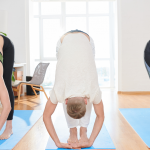Running and walking are popular forms of exercise in the United States, as well as all over the world. Running has been steadily on the rise since the 70s, while walking has risen steadily since the 90s. Since both exercises work different muscles and run at different speeds, which should you choose?
While both running and walking are beneficial for your health, only one can help you lose weight at the fastest rate. Even if you already have issues with your weight, running or walking regularly can help you maintain a healthy weight while also helping you prevent many diseases, such as heart disease, diabetes, and cancer. And while exercise, in general, is beneficial to your health, running and walking is more effective than most other exercises in the weight loss department.
Regular physical activity can improve circulation, which is essential for preventing issues like varicose veins and other vascular problems. However, if you already have such issues, it can be important to consult with a healthcare professional who specializes in vascular health. For instance, you can look for a vein clinic southern california, or in a location near you, that can provide specialized care to address conditions such as varicose veins or spider veins. Whether you are a seasoned runner or just started walking, professional guidance can help you manage and prevent such issues, so that you can maintain an active lifestyle.
Running and walking both provide fantastic health benefits. But do they actually work the same? Or are there some major differences between the two that you need to know?
Running
Running is a sport that has the potential to make you a healthier person. It’s estimated that 30 million people in the U.S. run, and millions more are thinking about taking up running. The health benefits of running are many, and it’s no wonder that so many people love it.
Running is one of the best exercises you can do to keep your body in shape. Not only do you burn tons of calories during those 10 or 15 minutes you’re pounding the pavement, but running also strengthens your bones and boosts your cardiovascular health. According to studies, runners actually live longer than non-runners, and you might feel more confident about yourself. If you’re looking to get into running you can speak to a run coach in blackburn, or one local to you, for tips and advice.
Running has long been considered one of the simplest and most effective ways to improve your health. While it’s true that running is a low-impact activity, it’s also important to remember that your body needs time to recover. If you’re new to running, start by doing no more than 30 minutes at a time. If you’re already an avid runner, try and run no more than four days a week. Mix up your routes-try out a new route to your home or office, or switch to a different route on an existing one.
Keep in mind that runners often incur injuries such as sprains and strains. If you find yourself grappling with the same, then reaching out to a physiotherapist available at Pursue Physical Therapy & Performance Training can be crucial for effective recovery and healing. A physiotherapist can assess the specific nature of your injury, design a personalized rehabilitation plan, and provide targeted exercises to enhance strength and flexibility. By seeking timely assistance, you can expedite the healing process and also receive valuable insights on injury prevention. Just make sure to find one close to where you are so you can keep up with your appointments. Search keywords online such as “physiotherapist near me“, for instance, so that you can be put in touch with one that works with your needs.
Walking
It’s official: walking is one of the best things you can do for your body. In addition to improved flexibility, better posture, and a healthier heart, walking can also help you lose weight. In fact, walking for just 30 minutes a day can burn as much as 500 calories, while 60 minutes or 1 mile per day can burn up to 1,000 calories. With all the health benefits walking has to offer, you may be wondering where to begin.
Want to lose weight? Want to get off the couch and get moving? Want to feel healthier, fitter, and happier? Then start walking. Walking is the number-one way to burn calories and get out and move your body. And walking for thirty minutes each day, five days a week can go a long way toward your health goals. Aside from losing weight, the benefits of walking also include lowering your cholesterol, reducing your risk of heart disease, improving your memory, and reducing depression.
Research shows that walking for at least 30 minutes a day, five days a week, improves our health. It lowers blood pressure, increases cardiovascular health, aids weight loss, strengthens our bones, improves our moods, and reduces our risk of developing type 2 diabetes. (More research is needed before we know for sure if the health benefits are as great or even greater for people who walk 60 minutes a day, five days a week.)




